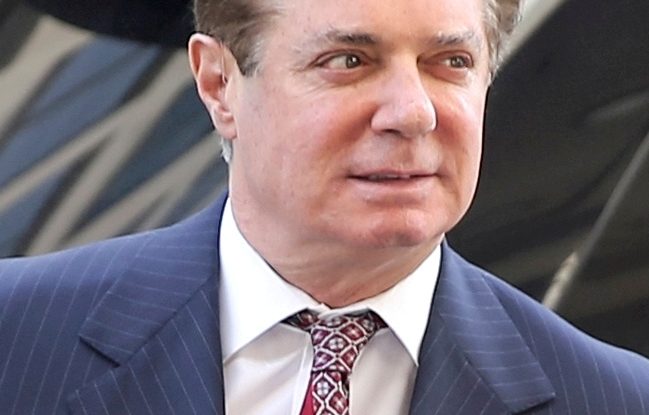
I’ve long argued that progressivism must be internationalist in orientation. Among other reasons, contemporary kleptocracy and oligarchy is transnational character. Global economic order, especially when it comes to capital mobility and offshoring, nurtures kleptocrats and oligarchs while spreading the rot of their corruption across borders. Large sums of money stolen from citizens—through outright theft or the extraction of rents—is laundered by international banks and luxury real-estate brokers; circulated via shell companies incorporated in lax jurisdictions such as the Cayman Islands, Nevada, Bermuda, and Delaware; used to peddled political influence by underwriting think tanks and paying lobbyists; and plays an important role in building, sustaining, and networking the international right.
Thus, I was pleased to see that Ben Judah and Nate Sibley have a very important piece in Foreign Policy about the growing challenge posed by kleptocracy to liberal democracy and progressive values.
It drifts through the politics and media of Washington, London, Brussels, and Berlin; in the armies of lobbyists, lawyers, and PR teams working for oligarchs, kleptocrats, and state-controlled enterprises. Outside the major capitals, it haunts the edges of the West, where more vulnerable members of NATO and the European Union feel the chilling grip of Russian and Chinese power.
And beyond the West, kleptocracy—not ideology or terrorism—is the main obstacle to democracy across the developing world. It has transformed the psychology of elites: Why respond to popular demands when a billion-dollar bank account in Switzerland remains your ultimate escape route? It has broken a historical pattern: American and European elites in the 19th century were forced to gradually extend the franchise in order to preserve their wealth—because they didn’t have a private plane and somewhere better to take refuge.
But that’s not the only danger. Kleptocracy poisons everything it touches: not only the lives of the poorest and most vulnerable people in the world, but also the recipient countries whose professionals launder and hide stolen funds. As the power of corruption grows, it is not only blocking democracy in the developing world but also corroding it in the West.
They stress that both the European Union and the United States have a mixed record when it comes to combating transnational corruption, too often putting narrower economic interest ahead of the kind of cooperation necessary to stem the spread of kleptocratic politics. They also provide a good set of recommendations for how the US and the EU can, alone and together, take steps to combat corruption.
It is difficult to overstate how much counter-order movements—often, but not exclusively, right-wing—and globalized corruption are intertwined. The right-wing elites who support Brexit may cast their agendas in terms of national self-determination, but what they really want is to turn the UK into a global tax haven: an even more important destination for oligarchic wealth to flow into the hands of the financial and real-estate sector, with everyone involved subject to lower levels of taxation.
The United States, meanwhile, is saddled with the most financially corrupt president in its post-war history. Trump aids and abets the interconnected sinews of kleptocracy and illiberalism. His appointments and policies amount to a “smash and grab” on American resources and collective goods: driving up the debt via pro-cyclical and regressive tax cuts; allowing corporations to ravage the natural environment and poison (figurative and literally) Americans; and crippling the expert capital that undergirds American international regulatory power.
While the United States has done important things to combat global corruption, Judah and Sibley rightly stress how lax American oversight in key arenas—such as shell corporations and the luxury real-estate market—has contributed to global kleptocracy. But, as Paul Musgrave recently argued, Trump has done even more. He has hijacked U.S. foreign policy to export high-level, personal corruption.
To be clear, the story here isn’t about specific relationships among individual people; Zelensky comes from a different part of the Ukrainian political ecosystem than did Manafort’s clients. Rather, it’s about the fact that money can buy officials and influence in Washington, just as it can in Kiev — and that the transnational nature of this corruption has undermined progress toward the optimistic dream of the 1990s. In a poetic inversion of Clinton’s image of the Ukrainian and American flags flying side-by-side, Zelensky made sure to tell Trump that he stayed in Trump Tower when he was last in New York.
The cumulative effects of this corruption without borders are now plainly visible. At a minimum, the ease with which Trump winkingly suggested that he wanted help in digging up dirt on a rival clearly demonstrates that he was willing to skim a little off the top. Moreover, he was willing to do so while working out a deal meant to advance two countries’ national interests. That isn’t the act of a government that stands taller and sees further. It isn’t even the action of a grim realist calculating what would put America first. It’s the modus operandi of a Mafioso.
All of this suggests that, somewhat incredibly, the stakes of the impeachment inquiry are even greater than the fate of the Trump administration. During the Watergate proceedings, legislators made clear that their goal was to ensure that no president was above the law. President Richard Nixon’s gravest sins involved using government agencies, from the IRS to the CIA, to go after his political enemies
As far as we can tell, Trump’s apparent actions — prompting another country’s government to engage in a smear job — are even worse. They involve using foreign policy tools for private domestic political gain.
In Exit from Hegemony, we take a deeper dive into the intersection of transnational counter-order movements and kleptocracy. We stress how kleptocratic illiberalism repurposes the infrastructure of liberal order for its own corrupt ends. Readers are free to agree or disagree with our own political views, of course. But we hope that our discussion of a possible future international order—one in which corrupt and autocratic leaders subvert and co-opt international liberal institutions—provides something of a wakeup call about the need for a robust anti-corruption agenda.

